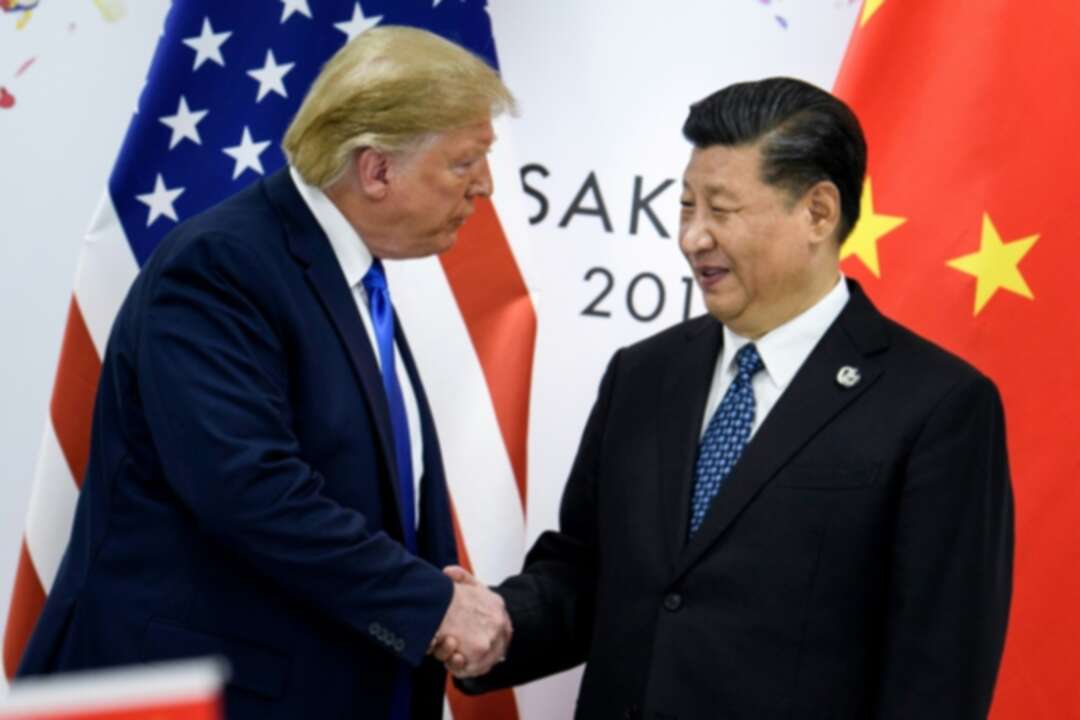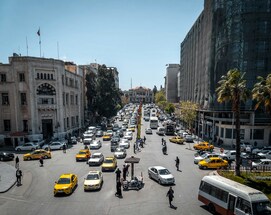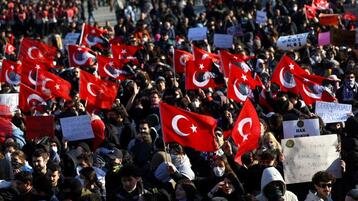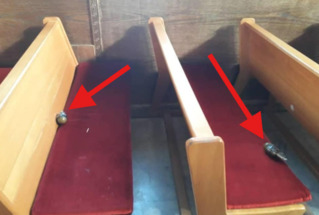-
China coy on 'BIG' trade deal announced by Trump

US President Donald Trump has declared that a deal to de-escalate the trade war with China was imminent but Beijing remained coy on Friday and cautioned that any agreement must be "mutually beneficial."
Reports Washington and Beijing had struck a bargain at last -- subject to approval by US President Donald Trump -- sent US stocks sailing to their first record closes of December.
"Getting VERY close to a BIG DEAL with China. They want it, and so do we!" Trump tweeted in a markedly optimistic tone on Thursday.
But Beijing declined to confirm a possible signing of a "phase-one" deal on Friday.
"We always adhere to the principle that consultation must be based on equality and mutual respect, and the agreement must be mutually beneficial and a win-win solution," Chinese foreign ministry spokeswoman Hua Chunying said at a regular briefing.
In a sign that tensions remain high between the two powers, Foreign Minister Wang Yi said Washington was "suppressing" China across several fields, including the economy, trade, and technology.
Speaking at a symposium on international affairs in Beijing, Wang said the United States has "seriously damaged the foundation of hard-earned trust between China and the US."
Washington has angered Beijing by backing Hong Kong's pro-democracy movement and criticizing China's mass detention of mostly Muslim minorities in the northwest region of Xinjiang.
Trump's flagging of a trade breakthrough comes ahead of new tariffs planned to take effect Sunday and also just as he is almost sure to become only the third US president to be impeached.
With his 2020 re-election battle heating up, Trump is keen to seize the political initiative and show voters his punishing struggle with China has brought results.
The US ultimately wants China to open its vast economy to more goods and to conduct sweeping reforms of what Washington has long called systemic abuse against foreign investors.
Recently though, White House officials have indicated they would settle for less in a so-called "phase one" deal.
The Washington Post reported that Trump had signed off on a swap of tariff reductions in return for China spending $50 billion on US farm goods, tightening its intellectual property protections and opening its financial services markets.
The paper cited Michael Pillsbury, a China expert at the Washington-based Hudson Institute it said had been briefed by Trump, and an unnamed senior administration official.
Plans for an official announcement had not been nailed down, the daily said, adding that the administration does not intend to seek congressional approval.
In addition to existing tariffs, Trump had threatened to impose a 15 percent levy Sunday on around $160 billion of Chinese exports, including popular US consumer goods like electronics and clothing.
China had previously said it would respond with a 25 percent tariff on US autos and a five percent tariff on auto parts -- levies that were suspended earlier this year as a goodwill gesture.
According to The Wall Street Journal, the US side is offering to scrap the threatened Sunday tariffs and also cut existing duties imposed on about $360 billion in Chinese goods.
Trump's overall goal with China and a keystone of his presidency, is to uproot what Washington says are Beijing's predatory trade practices, including forced technology transfers and massive intellectual property theft.
Trump himself has blown hot and cold, repeatedly insisting that China needs a deal more than the United States does.
At the end of November, he said he was in the "final throes" of negotiations, but days later he spooked world financial markets when he said, "I have no deadline" for a resolution.
The intense talks, involving multiple meetings in Beijing and Washington, were further complicated by tensions over the pro-democracy uprising in Hong Kong.
Trump, somewhat reluctantly, signed a law passed with overwhelming congressional support in November that backs the Hong Kong demonstrators.
Beijing responded that the law was "abominable" and "sinister," but ultimately appeared to have little in the way of counter-measures.
source: AFP
You May Also Like
Popular Posts
Caricature
BENEFIT AGM approves 10%...
- March 27, 2025
BENEFIT, the Kingdom’s innovator and leading company in Fintech and electronic financial transactions service, held its Annual General Meeting (AGM) at the company’s headquarters in the Seef District.
During the meeting, shareholders approved all items listed on the agenda, including the ratification of the minutes of the previous AGM held on 26 March 2024. The session reviewed and approved the Board’s Annual Report on the company’s activities and financial performance for the fiscal year ended 31 December 2024, and the shareholders expressed their satisfaction with the company’s operational and financial results during the reporting period.
The meeting also reviewed the Independent External Auditor’s Report on the company’s consolidated financial statements for the year ended 31 December 2024. Subsequently, the shareholders approved the audited financial statements for the fiscal year. Based on the Board’s recommendation, the shareholders approved the distribution of a cash dividend equivalent to 10% of the paid-up share capital.
Furthermore, the shareholders endorsed the allocation of a total amount of BD 172,500 as remuneration to the members of the Board for the year ended 31 December 2024, subject to prior clearance by related authorities.
The extension of the current composition of the Board was approved, which includes ten members and one CBB observer, for a further six-month term, expiring in September 2025, pending no objection from the CBB.
The meeting reviewed and approved the Corporate Governance Report for 2024, which affirmed the company’s full compliance with the corporate governance directives issued by the CBB and other applicable regulatory frameworks. The AGM absolved the Board Members of liability for any of their actions during the year ending on 31st December 2024, in accordance with the Commercial Companies Law.
In alignment with regulatory requirements, the session approved the reappointment of Ernst & Young (EY) as the company’s External Auditors for the fiscal year 2025, covering both the parent company and its subsidiaries—Sinnad and Bahrain FinTech Bay. The Board was authorised to determine the external auditors’ professional fees, subject to approval from the CBB, and the meeting concluded with a discussion of any additional issues as per Article (207) of the Commercial Companies Law.
Speaking on the company’s performance, Mr. Mohamed Al Bastaki, Chairman BENEFIT , stated: “In terms of the financial results for 2024, I am pleased to say that the year gone by has also been proved to be a success in delivering tangible results. Growth rate for 2024 was 19 per cent. Revenue for the year was BD 17 M (US$ 45.3 Million) and net profit was 2 Million ($ 5.3 Million).
Mr. Al Bastaki also announced that the Board had formally adopted a new three-year strategic roadmap to commence in 2025. The strategy encompasses a phased international expansion, optimisation of internal operations, enhanced revenue diversification, long-term sustainability initiatives, and the advancement of innovation and digital transformation initiatives across all service lines.
“I extend my sincere appreciation to the CBB for its continued support of BENEFIT and its pivotal role in fostering a stable and progressive regulatory environment for the Kingdom’s banking and financial sector—an environment that has significantly reinforced Bahrain’s standing as a leading financial hub in the region,” said Mr. Al Bastaki. “I would also like to thank our partner banks and valued customers for their trust, and our shareholders for their ongoing encouragement. The achievements of 2024 set a strong precedent, and I am confident they will serve as a foundation for yet another successful and impactful year ahead.”
Chief Executive of BENEFIT; Mr. Abdulwahed AlJanahi commented, “The year 2024 represented another pivotal chapter in BENEFIT ’s evolution. We achieved substantial progress in advancing our digital strategy across multiple sectors, while reinforcing our long-term commitment to the development of Bahrain’s financial services and payments landscape. Throughout the year, we remained firmly aligned with our objective of delivering measurable value to our shareholders, strategic partners, and customers. At the same time, we continued to play an active role in enabling Bahrain’s digital economy by introducing innovative solutions and service enhancements that directly address market needs and future opportunities.”
Mr. AlJanahi affirmed that BENEFIT has successfully developed a robust and well-integrated payment network that connects individuals and businesses across Bahrain, accelerating the adoption of emerging technologies in the banking and financial services sector and reinforcing Bahrain’s position as a growing fintech hub, and added, “Our achievements of the past year reflect a long-term vision to establish a resilient electronic payment infrastructure that supports the Kingdom’s digital economy. Key developments in 2024 included the implementation of central authentication for open banking via BENEFIT Pay”
Mr. AlJanahi concluded by thanking the Board for its strategic direction, the company’s staff for their continued dedication, and the Central Bank of Bahrain, member banks, and shareholders for their valuable partnership and confidence in the company’s long-term vision.
opinion
Report
ads
Newsletter
Subscribe to our mailing list to get the new updates!






















